Home>Articles>Should An Electric Skillet Smoke When You Turn It On
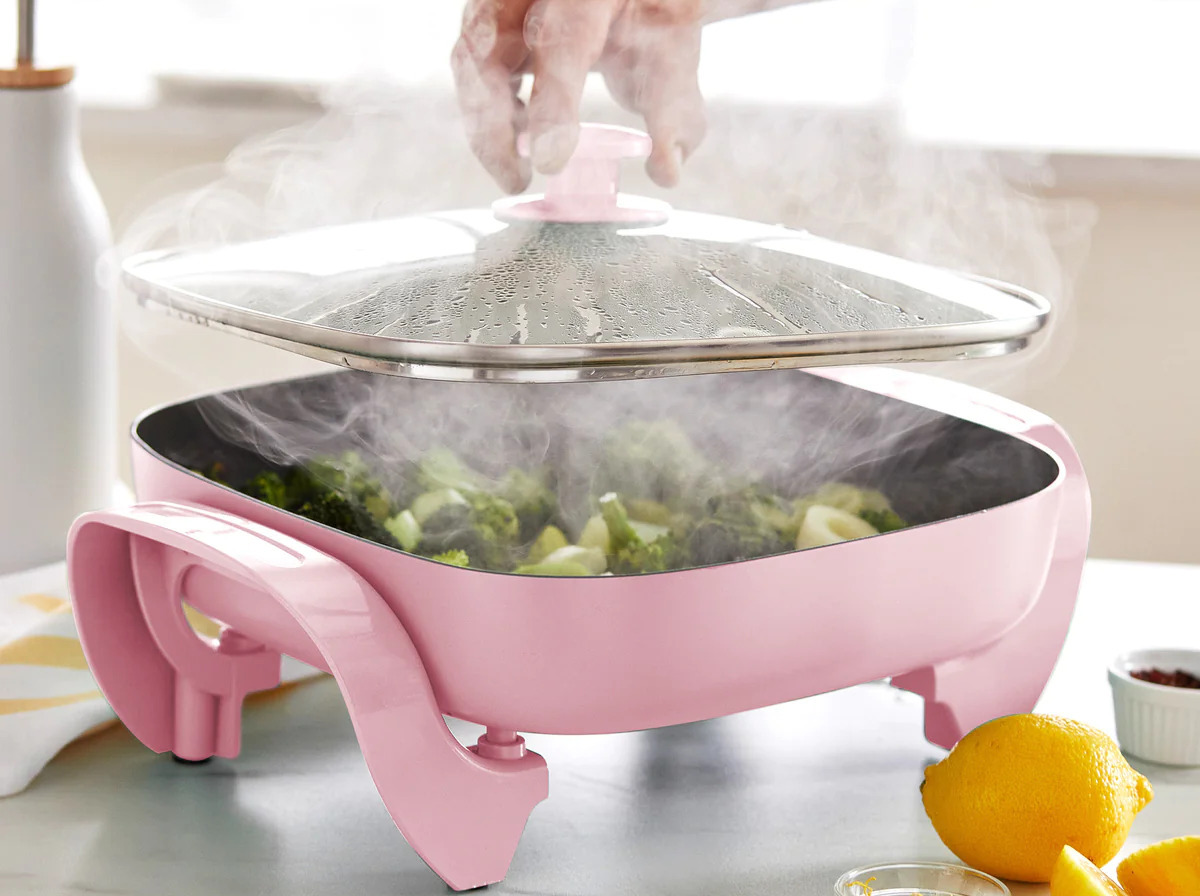

Articles
Should An Electric Skillet Smoke When You Turn It On
Modified: August 20, 2024
Unsure why your electric skillet is emitting smoke? Read our informative articles to understand possible causes and solutions.
(Many of the links in this article redirect to a specific reviewed product. Your purchase of these products through affiliate links helps to generate commission for Storables.com, at no extra cost. Learn more)
Introduction
Welcome to the world of electric skillets, where cooking becomes a breeze with just the turn of a knob. These versatile kitchen appliances are designed to heat food quickly and evenly, making them a convenient choice for many households. However, what happens when you turn on your electric skillet and notice smoke emanating from it? Is this normal or a cause for concern? In this article, we will delve into the topic of electric skillets and explore whether or not smoke is something to worry about.
Electric skillets have gained popularity over the years due to their ease of use and versatility. They offer features such as adjustable temperature settings and non-stick surfaces, making them a convenient alternative to traditional stovetop skillets. Whether you are sautéing vegetables, frying chicken, or making a stir-fry, electric skillets can be a valuable addition to any kitchen.
However, it is important to note that like any other electrical appliance, electric skillets can sometimes encounter issues that may cause smoke to be emitted when they are turned on. This can understandably be a cause for alarm for many users. In order to understand whether or not this smoke is normal, we need to explore the potential causes and solutions to this issue.
Join us as we dive into the world of electric skillets, unravel the mysteries behind the smoke, and discover how to ensure that your electric skillet operates smoothly and safely. By the end of this article, you will have gained a comprehensive understanding of electric skillets and their potential smoke-related concerns.
Key Takeaways:
- Electric skillet smoke is often caused by residue or overheating, but simple solutions like cleaning, adjusting temperature, and proper preheating can address the issue and ensure safe cooking experiences.
- Proper maintenance, including regular cleaning and following manufacturer instructions, is essential to prevent smoke and ensure optimal performance of your electric skillet.
Read more: When Should You Turn Air Conditioning On
Understanding Electric Skillets
Before we delve into the topic of smoke, let’s first understand how electric skillets work. An electric skillet, also known as an electric frying pan, is a portable cooking appliance that operates solely on electricity. It consists of a cooking surface, usually made of non-stick material, and a built-in heating element. The heating element is responsible for heating the cooking surface to the desired temperature.
Electric skillets offer several advantages over traditional stovetop skillets. Firstly, they provide precise temperature control, allowing you to set the desired heat level for cooking. This eliminates the need for constant monitoring and adjustments, resulting in more consistent cooking results. Additionally, electric skillets distribute heat evenly across the entire cooking surface, ensuring that your food cooks thoroughly and uniformly.
These appliances come in various sizes and shapes, ranging from small square skillets to larger rectangular ones. Some electric skillets also offer additional features such as steam vents, removable temperature controls, and even dishwasher-safe components, making them even more convenient to use and maintain.
It is essential to remember that electric skillets rely on electricity as their sole source of power. As such, they require a stable and grounded electrical connection to operate safely. Before using an electric skillet, ensure that the power cord is in good condition and properly connected to a grounded outlet. Safety should always be a top priority when using any electrical appliance.
Now that we have a basic understanding of electric skillets and how they function, let’s explore the potential causes for smoke and whether or not it is a cause for concern.
Potential Causes for Smoke
When you turn on your electric skillet and notice smoke coming from it, several potential causes may be responsible. While smoke can be alarming, it does not necessarily indicate a serious problem. Here are some common causes of smoke in electric skillets:
- Residual oil or food particles: Over time, oil or food particles may accumulate on the heating element or the cooking surface of the skillet. When you turn on the skillet, these residues can burn and produce smoke. Regular cleaning and maintenance can help prevent this issue.
- Excess grease or oil: If you add excessive amounts of oil or grease to the skillet, it can drip onto the heating element and cause smoke when it gets heated. Remember to use the appropriate amount of oil for cooking to avoid this problem.
- Moisture or condensation: Sometimes, when a cold or wet ingredient comes into contact with the hot cooking surface, it can create steam and vapor, which may appear as smoke. This is generally harmless and tends to dissipate quickly.
- Overheating: Electric skillets have temperature control settings to prevent overheating. However, if the temperature is set too high or the skillet is left unattended, it can exceed the safe operating temperature and generate smoke. It is essential to monitor the temperature and adjust it according to the recommended guidelines.
- Electrical issues: In rare cases, electrical problems within the skillet may cause smoke. Short circuits or faulty wiring can lead to overheating and smoke emission. If you suspect an electrical issue, it is crucial to discontinue use and have the skillet inspected by a professional.
It is important to note that while some smoke occurrences may be harmless, others can be dangerous and require immediate attention. Always exercise caution and assess the situation when you encounter smoke from your electric skillet.
Now that we have explored the potential causes of smoke, let’s move on to the common solutions for this issue.
Check the manufacturer’s instructions to ensure proper usage and maintenance. If the skillet continues to smoke excessively, discontinue use and contact the manufacturer for assistance.
Common Solutions for Smoke
If you notice smoke coming from your electric skillet, there are several simple solutions you can try before becoming overly concerned. Here are some common techniques to address the issue:
- Clean the skillet: As mentioned earlier, the accumulation of residual oil or food particles on the heating element or cooking surface can lead to smoke. Regularly clean your electric skillet according to the manufacturer’s instructions to remove any built-up residue. Use a mild detergent and non-abrasive cloth or sponge to avoid damaging the non-stick coating.
- Adjust the temperature: If your skillet is set to a high temperature, try lowering it to a more suitable cooking level. This can help prevent overheating and reduce the chances of smoke emission. Refer to the user manual for recommended temperature ranges for different cooking tasks.
- Avoid excessive oil or grease: Using too much oil or grease in your cooking can cause drippings that lead to smoke. Use the appropriate amount of oil or opt for healthier cooking options such as non-stick cooking spray or oil spritzers. Proper portioning can prevent unnecessary smoke production.
- Preheat properly: Preheating the skillet before adding ingredients helps ensure even heat distribution and can minimize the chances of smoke. Allow your skillet to reach the desired temperature before adding any food items.
- Be cautious with moist ingredients: When adding cold or wet ingredients to a hot skillet, be aware that the sudden contact may create steam or vapor that can appear as smoke. This is usually harmless and dissipates quickly. Consider bringing ingredients to room temperature or patting them dry before adding them to the skillet.
If you have tried these solutions and the smoke persists or if you notice any other concerning signs such as unusual smells or sparks, it is advisable to discontinue use of the skillet and consult a professional. Electrical issues or faulty components may require expert attention to ensure your safety.
Now that we have explored the common solutions for smoke in electric skillets, let’s discuss the importance of proper maintenance to prevent these issues from arising.
Importance of Proper Maintenance
Proper maintenance plays a crucial role in ensuring the optimal performance and longevity of your electric skillet. By following these maintenance practices, you can reduce the risk of smoke and other potential issues:
- Regular cleaning: Cleaning your electric skillet after every use helps remove any food residue or grease that may have accumulated. Be sure to unplug the skillet and allow it to cool before cleaning. Use a mild detergent, warm water, and a non-abrasive sponge or cloth to wipe the cooking surface and exterior. Avoid immersing the skillet in water, as this can damage the electrical components.
- Proper storage: When not in use, store your electric skillet in a cool and dry place. Avoid stacking heavy objects on top of it, as this can cause damage to the cooking surface or heating element. If your skillet has a detachable power cord, store it separately to prevent tangling or damage.
- Inspect for damage: Regularly inspect your electric skillet for any signs of damage, such as cracks in the cooking surface or frayed power cords. If you notice any issues, discontinue use and have the skillet repaired or replaced by a qualified professional.
- Follow manufacturer instructions: Read and follow the manufacturer’s instructions for your specific electric skillet model. These guidelines provide important information regarding temperature settings, recommended cleaning procedures, and safety precautions.
- Use appropriate utensils: When cooking with your electric skillet, use utensils made of non-metal materials to avoid scratching or damaging the non-stick cooking surface. Wooden, silicone, or nylon utensils are typically recommended for use in electric skillets.
By practicing proper maintenance, you can not only prevent issues like smoke but also increase the lifespan of your electric skillet and ensure safe and healthy cooking experiences. Remember, a well-maintained electric skillet is a reliable and efficient kitchen companion.
As we conclude, let’s recap what we have learned about electric skillets and smoke-related concerns.
Conclusion
Electric skillets are versatile and convenient appliances that have become a staple in many kitchens. While seeing smoke when you turn on your electric skillet can be concerning, it is important to remember that not all cases of smoke are cause for alarm. By understanding the potential causes and implementing simple solutions, you can ensure a safe and enjoyable cooking experience with your electric skillet.
We discussed how electric skillets work and the various advantages they offer, including precise temperature control and even heat distribution. It is crucial to follow safety guidelines and maintain a stable electrical connection when using these appliances.
When it comes to smoke in electric skillets, common causes include residual oil or food particles, excess grease or oil, moisture or condensation, overheating, and electrical issues. By cleaning the skillet regularly, adjusting the temperature, using appropriate amounts of oil, preheating properly, and being cautious with moist ingredients, you can address and prevent smoke-related issues.
Proper maintenance of your electric skillet, including regular cleaning, proper storage, inspecting for damage, following manufacturer instructions, and using appropriate utensils, is essential to ensure its optimal performance and longevity. By practicing these maintenance practices, you can minimize the chances of smoke and other potential issues.
In summary, while smoke from an electric skillet can be alarming, it is often manageable and can be resolved through simple solutions and proper maintenance. By understanding your electric skillet and taking care of it, you can enjoy delicious meals without any unnecessary smoke or concerns.
So, the next time you turn on your electric skillet, cook up a storm with confidence, knowing that you are well-equipped to handle any smoke-related situations that may arise.
Frequently Asked Questions about Should An Electric Skillet Smoke When You Turn It On
Was this page helpful?
At Storables.com, we guarantee accurate and reliable information. Our content, validated by Expert Board Contributors, is crafted following stringent Editorial Policies. We're committed to providing you with well-researched, expert-backed insights for all your informational needs.

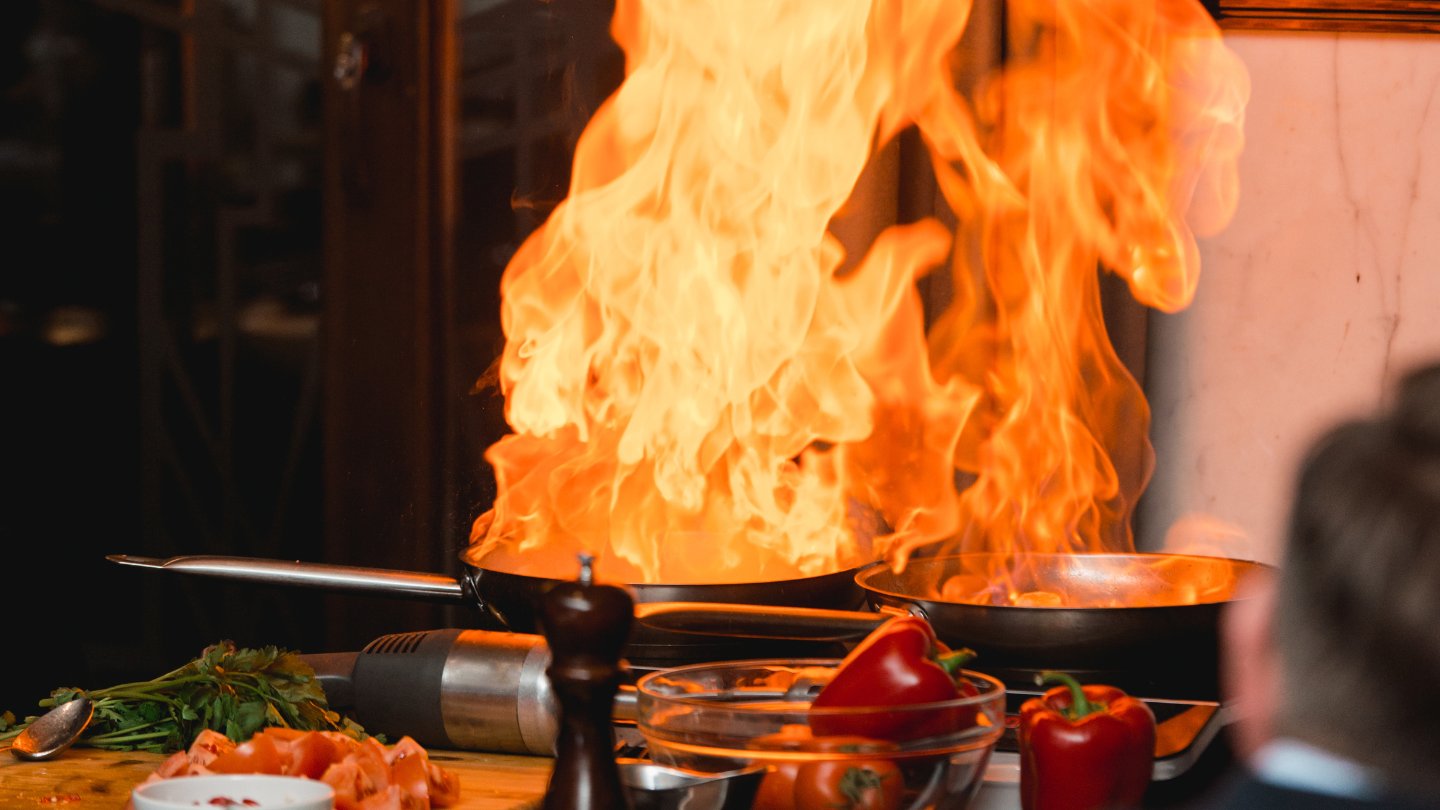

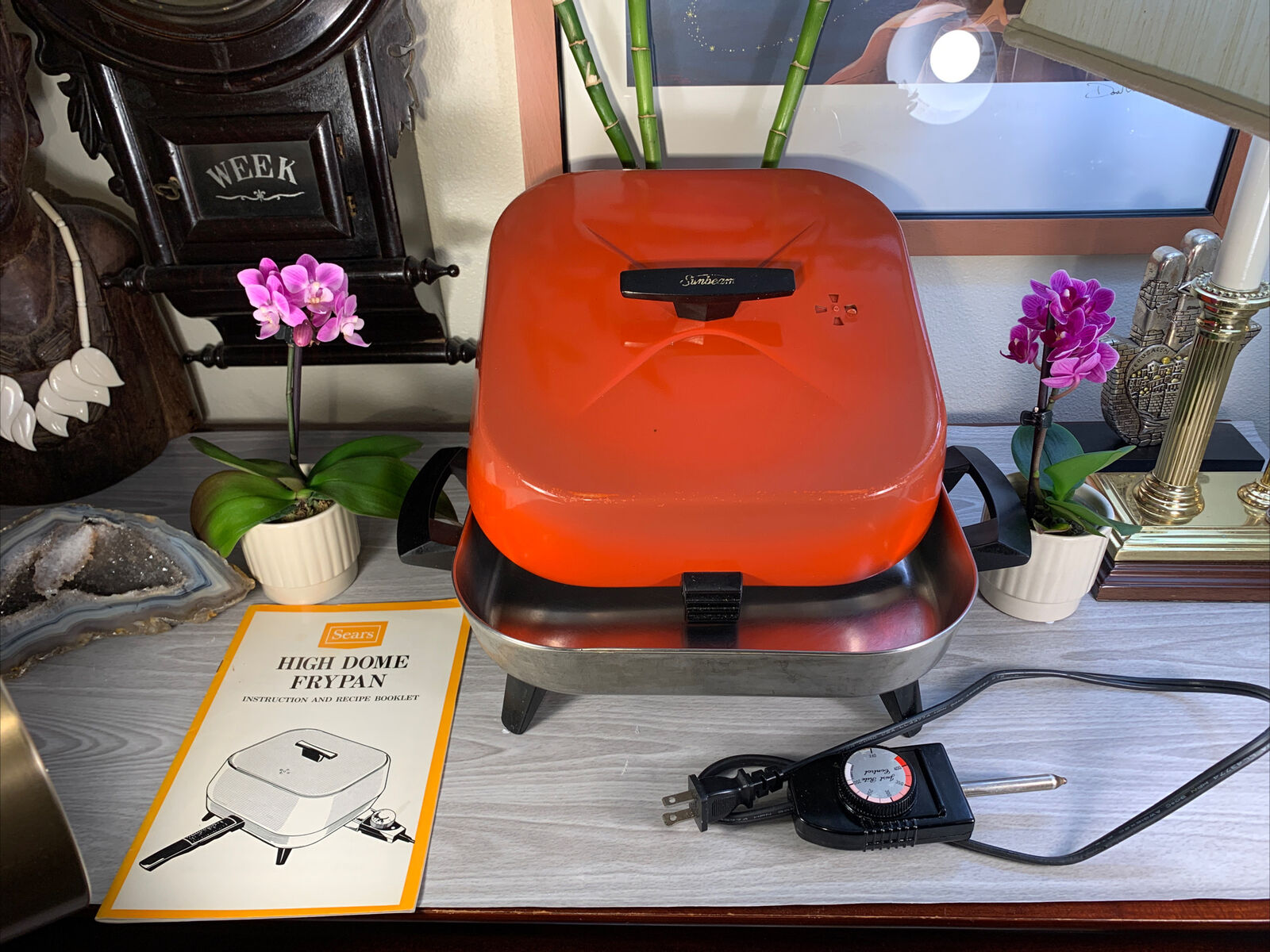
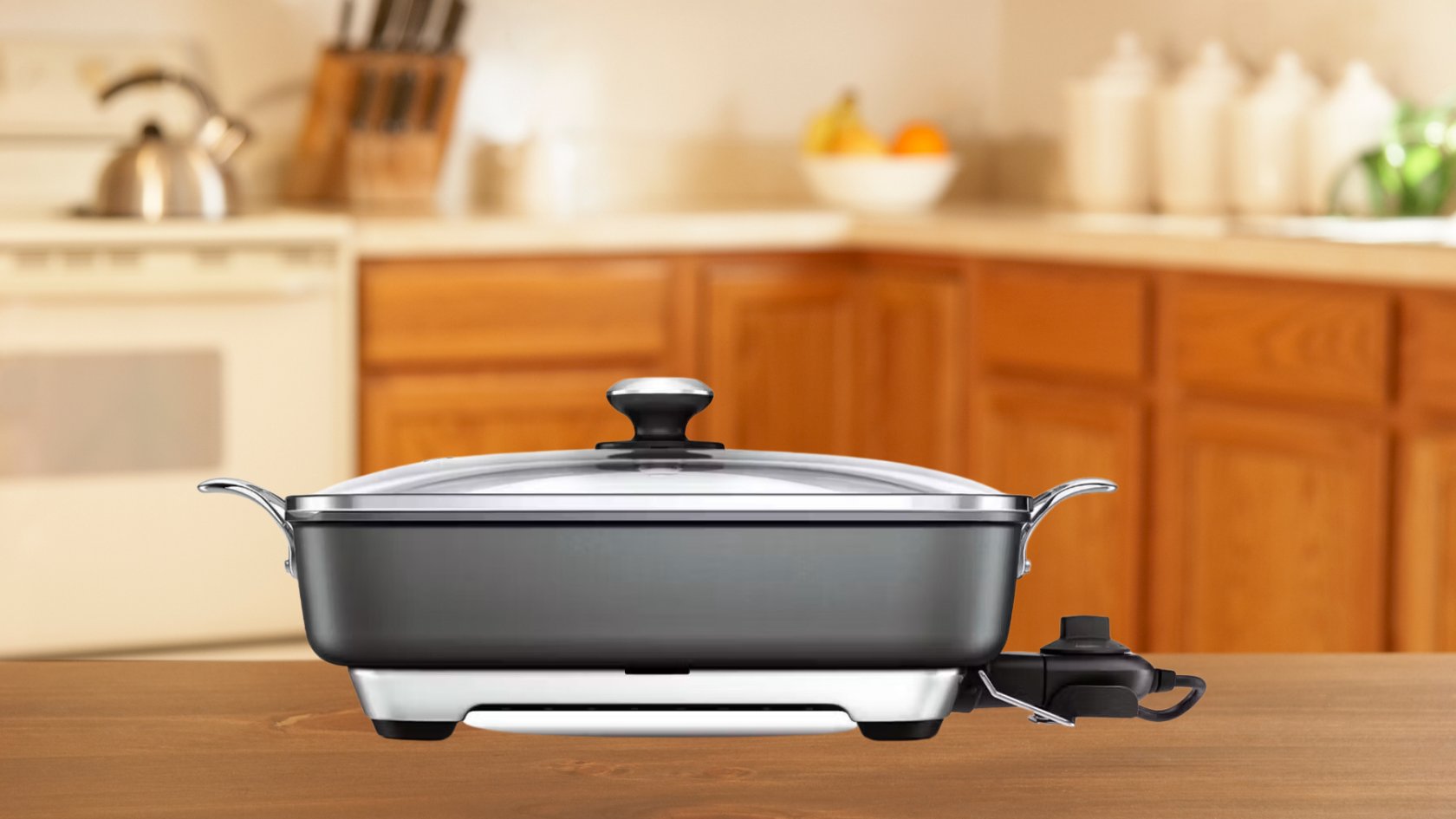
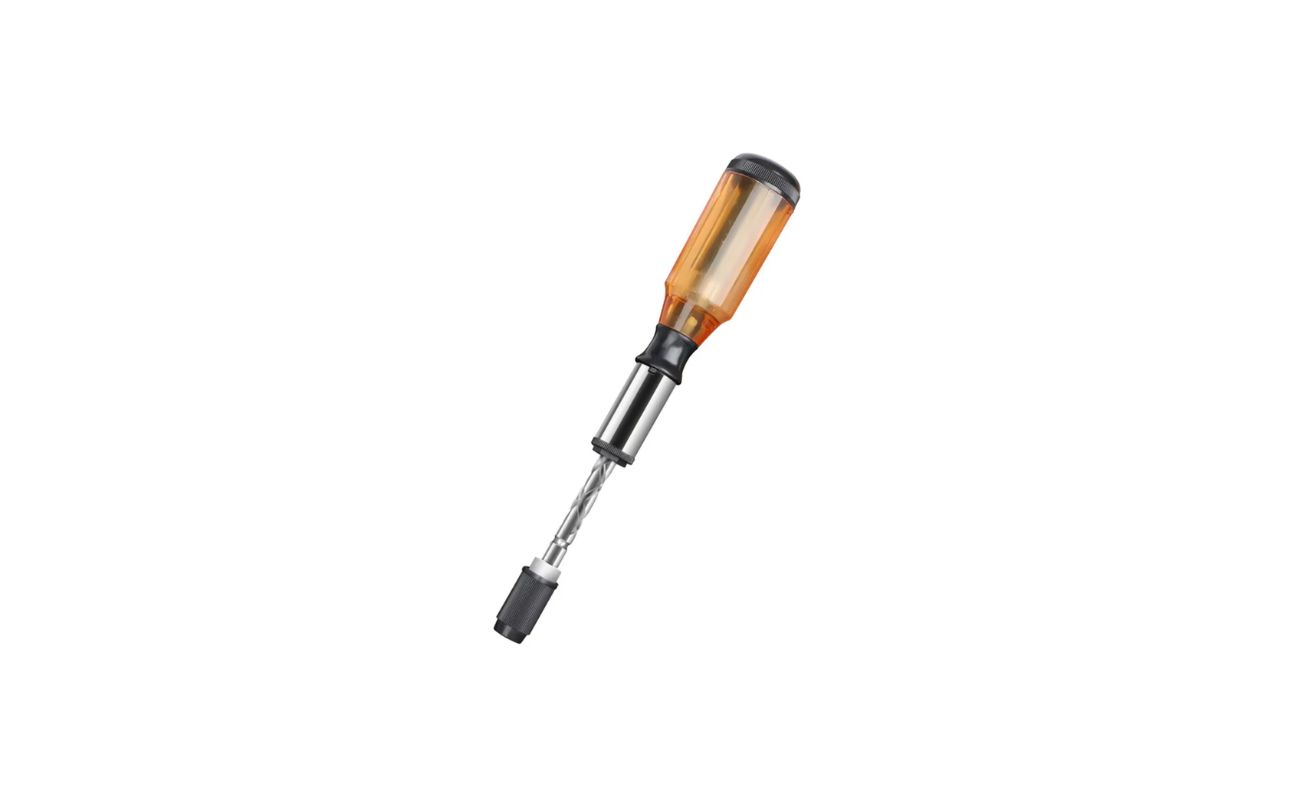
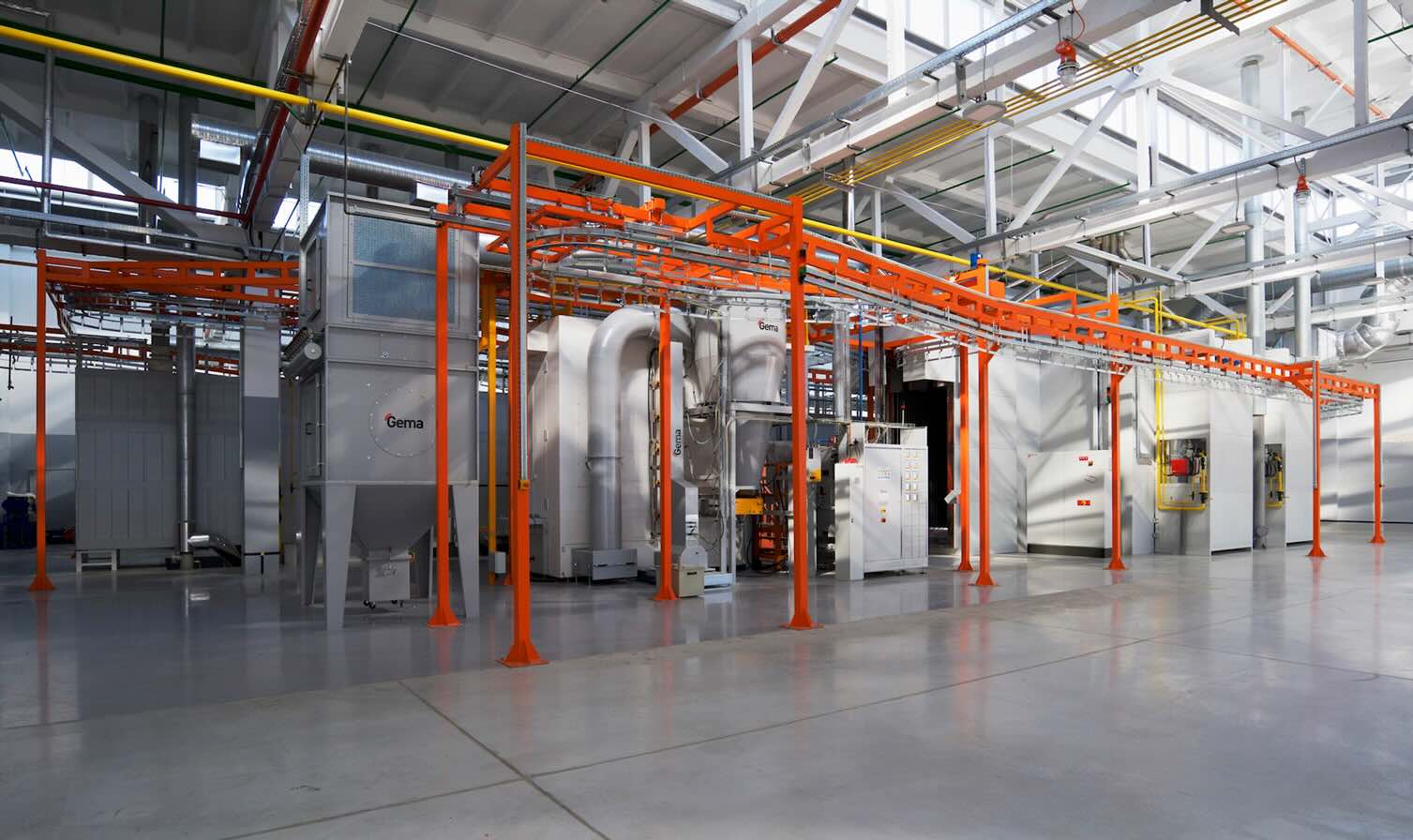

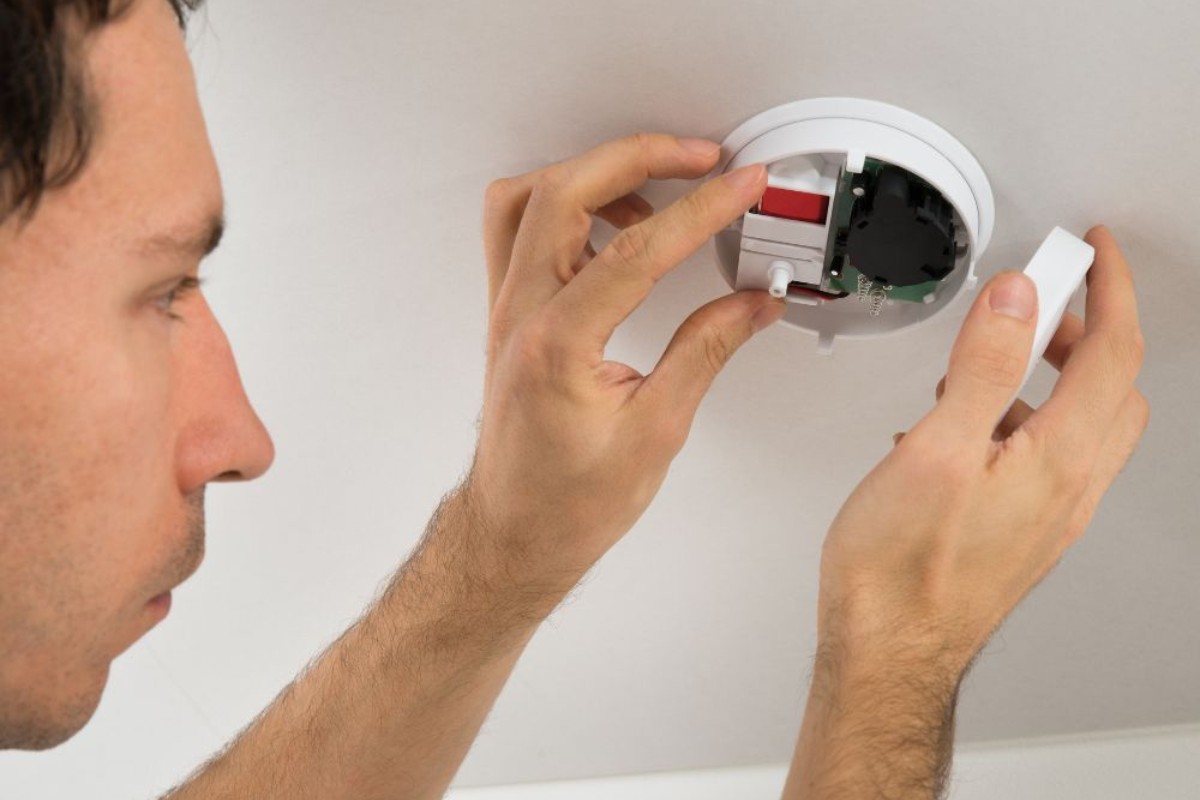

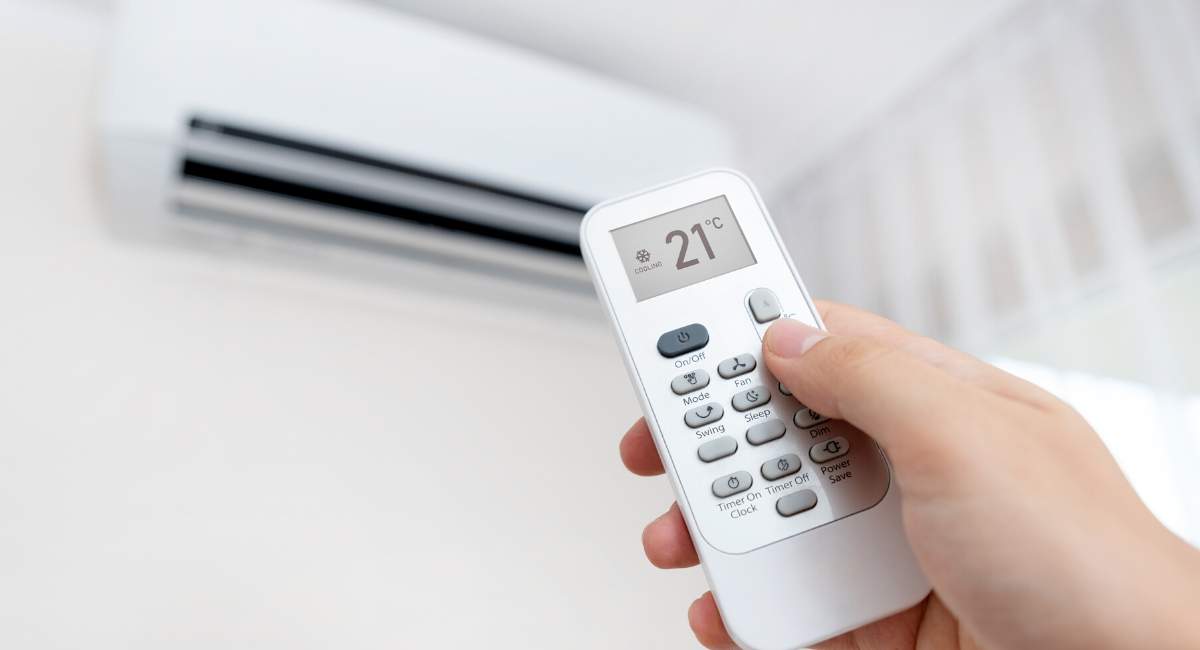
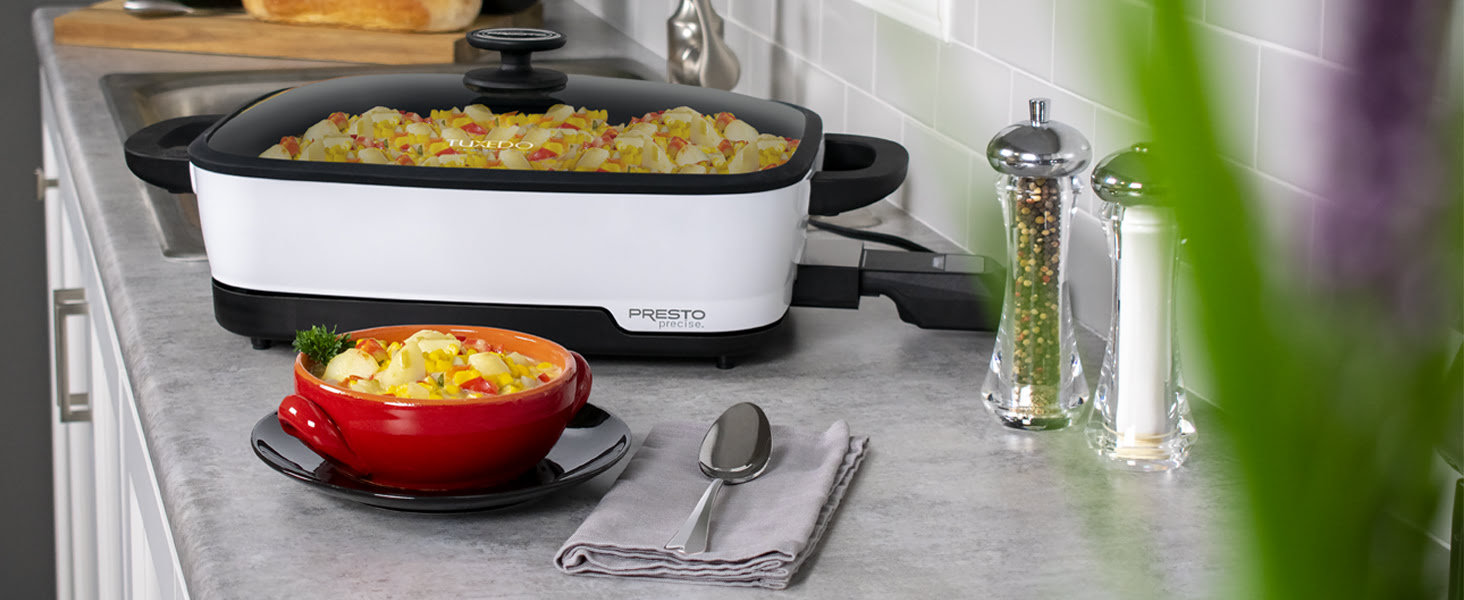



0 thoughts on “Should An Electric Skillet Smoke When You Turn It On”